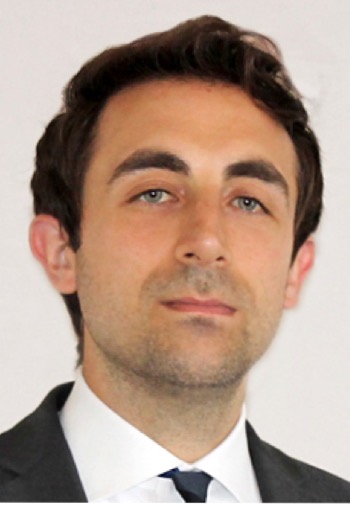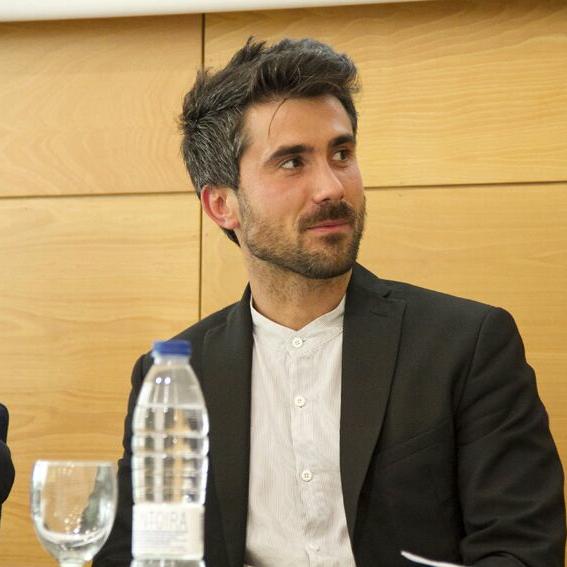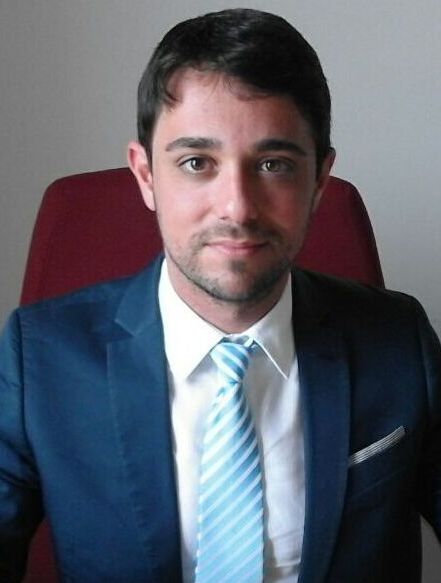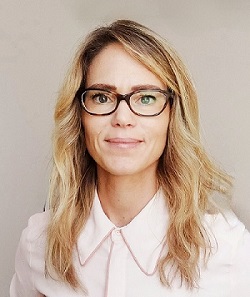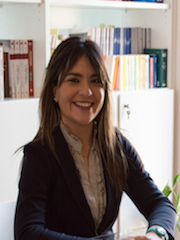Studying at the University of Verona
Here you can find information on the organisational aspects of the Programme, lecture timetables, learning activities and useful contact details for your time at the University, from enrolment to graduation.
Academic calendar
The academic calendar shows the deadlines and scheduled events that are relevant to students, teaching and technical-administrative staff of the University. Public holidays and University closures are also indicated. The academic year normally begins on 1 October each year and ends on 30 September of the following year.
Course calendar
The Academic Calendar sets out the degree programme lecture and exam timetables, as well as the relevant university closure dates..
| Period | From | To |
|---|---|---|
| 1° periodo lezioni (1A) | Sep 16, 2021 | Oct 30, 2021 |
| 1° periodo lezioni (1B) | Nov 5, 2021 | Dec 16, 2021 |
| 2° periodo lezioni (2A) | Feb 14, 2022 | Mar 26, 2022 |
| 2° periodo lezioni (2B) | Apr 4, 2022 | May 20, 2022 |
| Session | From | To |
|---|---|---|
| Prove parziali 9/12 CFU - Prove finali 6 CFU del periodo 1A | Nov 2, 2021 | Nov 4, 2021 |
| 1° appello invernale - dicembre 2021 | Dec 17, 2021 | Dec 23, 2021 |
| Sessione invernale - 2 appelli | Jan 8, 2022 | Feb 12, 2022 |
| Prove parziali 9/12 CFU - Prove finali 6 CFU del periodo 2A | Mar 28, 2022 | Apr 2, 2022 |
| Sessione estiva - 3 appelli | May 23, 2022 | Jul 27, 2022 |
| Sessione autunnale - 1 appello | Aug 25, 2022 | Sep 17, 2022 |
| Period | From | To |
|---|---|---|
| Festa di Tutti i Santi | Nov 1, 2021 | Nov 1, 2021 |
| Festa dell'Immacolata Concezione | Dec 8, 2021 | Dec 8, 2021 |
| Vacanze di Natale | Dec 24, 2021 | Jan 6, 2022 |
| Vacanze Pasquali | Apr 15, 2022 | Apr 19, 2022 |
| Festa della Liberazione | Apr 25, 2022 | Apr 25, 2022 |
| FESTA DEL LAVORO | May 1, 2022 | May 1, 2022 |
| Santo Patrono | May 21, 2022 | May 21, 2022 |
| Festa della Repubblica | Jun 2, 2022 | Jun 2, 2022 |
Exam calendar
Exam dates and rounds are managed by the relevant Law Teaching and Student Services Unit.
To view all the exam sessions available, please use the Exam dashboard on ESSE3.
If you forgot your login details or have problems logging in, please contact the relevant IT HelpDesk, or check the login details recovery web page.
Should you have any doubts or questions, please check the Enrollment FAQs
Academic staff
 francesca.bazzani@univr.it
francesca.bazzani@univr.it
 bernardo.calabrese@univr.it
bernardo.calabrese@univr.it
 roberto.flor@univr.it
roberto.flor@univr.it
 stefano.gatti@univr.it
stefano.gatti@univr.it
 mariangela.massella@univr.it
mariangela.massella@univr.it
 gustavoadolfo.nobilemattei@univr.it
gustavoadolfo.nobilemattei@univr.it
 cinzia.peraro@univr.it
cinzia.peraro@univr.it
 diego.tilola@univr.it
diego.tilola@univr.it
Study Plan
The Study Plan includes all modules, teaching and learning activities that each student will need to undertake during their time at the University.
Please select your Study Plan based on your enrollment year.
1° Year
| Modules | Credits | TAF | SSD |
|---|
2° Year activated in the A.Y. 2022/2023
| Modules | Credits | TAF | SSD |
|---|
1 module between the following1 module between the following| Modules | Credits | TAF | SSD |
|---|
| Modules | Credits | TAF | SSD |
|---|
1 module between the following1 module between the following| Modules | Credits | TAF | SSD |
|---|
Legend | Type of training activity (TTA)
TAF (Type of Educational Activity) All courses and activities are classified into different types of educational activities, indicated by a letter.
Marketing of fashion, cultural heritage and sustainable tourism (2022/2023)
Teaching code
4S009813
Teacher
Coordinator
Credits
6
Language
Italian
Scientific Disciplinary Sector (SSD)
SECS-P/08 - MANAGEMENT
Period
2nd lecture period (2B) dal Apr 3, 2023 al May 23, 2023.
Learning objectives
This course is included in the learning area on Food, fashion and cultural heritage. It aims to introduce students to the contents of marketing in the food, fashion and sustainable tourism industries, also in their role of peculiar components of a given geographical area and as promoters of both technological and non-technological innovation.
More in detail, attention will be focused on knowledge and understanding of the role and function of marketing in the current economic and social context, with insights related to the specific industries. The dimensions of sustainability, territorial identity and innovation will serve as significant drivers of the analysis.
In terms of skills, students will be able to get acquainted with the latest marketing techniques and tools, with a special focus on the opportunities arising from the integration of the offline and online dimensions.
By completion of the course, students will be able to understand the underlying logic of marketing and apply the main techniques to the food, fashion and cultural heritage industries, developing their ability to act as a factor of local development. Central to this will be the concept of sustainability and its declination in the various sectors as a factor of entrepreneurship activation and entrepreneurial transformation.
Students will also acquire the ability to face and solve practical problems typical of the professional context in which they will operate, thus orienting their competence to the goal of contractual compliance and to the prevention of the judicial conflicts. Students will also be able to verify the practical and applicative consequences of the theoretical and regulatory framework and to set, in written and oral form (and also through group work, written exercises and the method of Problem Based Solving - PBS), the solution to concrete issues, using the appropriate and specific disciplinary vocabulary, adopting the correct lines of reasoning and argumentation, and formulating autonomous judgments. The teaching method used is functional to the continuous learning and updating of acquired knowledge.
Prerequisites and basic notions
knowledge of the Italian language as required by the university
Program
The course aims is to give the students useful tools and competencies to understand marketing topics and its latest trends.
The attention will be focused on the knowledge and understanding of the role and function of marketing in the current economic and social context, with particular attention to the dynamics of the food, fashion, sustainable tourism and cultural heritage sectors.
At the end of the course, the student will be able to understand the underlying logic of marketing and apply its main techniques to the sectors in question.
The student will also acquire the ability to analyze and recognize the real dynamics and problems of the professional context, also highlighting the potential areas of judicial conflict, as well as an appropriate and specific disciplinary vocabulary.
The teaching method used will be functional to the continuous learning and updating of the knowledge acquired and will include lectures, practical cases, group comparison and possible working projects.
PROGRAM
→ Fundamentals of Marketing
Definition, macro areas, brand importance, marketing toolbox
→ Trends: sustainability, digital innovation and new values
→ Focus: food, fashion, sustainable tourism and cultural heritage
For each sector we will see the trends listed with reference to the main dynamics with key words and practical cases.
Textbooks: updated info will be communicated soon.
Recommended boxs:
→ materiale didattico delle lezioni
→ A. Mattiacci, A. Pastore (2021) "Il marketing - il management orientato al mercato", 2° ed, Hoepli
Only chapters: 1, 2 and 23
→ Busacca, Bertoli, Ostillio (2022) "La marca: costruzione, sviluppo, valutazione", Egea.
Only
Cap1: 1.1, 1.2, 1.3, 1.4, 1.5, 1.6
Cap2: 2.1, 2.2, 2.3, 2.4, 2.6
Cap3: 3.1, 3.2, 3.3
→ Atik, Deniz ; Ozdamar Ertekin, Zeynep (2023). The restless desire for the new versus sustainability: the pressing need for social marketing in fashion industry. Journal of social marketing, 2023, Vol.13 (1), p.1-19
→ Kim, Kyung Hoon ; Kim, Eun Young (2020). Fashion marketing trends in social media and sustainability in fashion management. Journal of business research, 2020, Vol.117, p.508-509
→ Sorokina, E., Wang, Y., Fyall, A., Lugosi, P., Torres, E., & Jung, T. (2022). Constructing a smart destination framework: A destination marketing organization perspective. Journal of Destination Marketing & Management, 23, 100688.
→ Garibaldi, Roberta ; Pozzi, Andrea (2018). Creating tourism experiences combining food and culture: an analysis among Italian producers. Tourism review (Association internationale d'experts scientifiques du tourisme), 2018, Vol.73 (2), p.230-241
→ Gabriele Troilo (2022). Post modernità, consumo e marketing dei beni artistici e culturali. Micro & Macro Marketing, 2002, Vol.31 (1), p.9-32
PROGRAM UNDER CONSTRUCTION: laste rev 26/03/2023
Bibliography
Didactic methods
Face-to-face lessons. Along side with practical cases, case histories and group comparison and/or with any guests.
Learning assessment procedures
The exam will consist of an oral test with open-ended questions aimed at ascertaining the knowledge of the individual topics relating to the course
Evaluation criteria
Theoretical knowledge of individual topics; Level of in-depth study and capacity for argumentation of individual topics; Mastery of language; Ability to link topics; Ability to connect the teroric topics also through examples.
Exam language
Italiano
Type D and Type F activities
Le attività che consentono l’acquisizione dei crediti riservati alle attività formative a libera scelta dello studente (TAF D) sono le seguenti:
- Un insegnamento previsto nell’elenco delle attività formative (TAF D) allegato al piano didattico del corso di laurea in Diritto per le tecnologie e l’innovazione sostenibile;
- Un insegnamento attivato nei Corsi di studi afferenti al Collegio didattico;
- Un laboratorio didattico attivato nei Corsi di studi afferenti al Collegio didattico;
- Un laboratorio didattico attivato nei Corsi di studi afferenti al Dipartimento di Scienze Giuridiche;
- Un insegnamento previsto dall’Offerta Formativa di Ateneo, non impartito nell’ambito dei corsi di studi afferenti al Collegio didattico: il riconoscimento dei crediti acquisiti sarà subordinato alla preventiva presentazione di coerenti programmi formativi valutati dalla Commissione istruttoria per la didattica e approvati dal Collegio didattico.
- Attività formative organizzate dai singoli docenti del Collegio didattico o del Dipartimento di Scienze Giuridiche: previa approvazione del Collegio ad esse verrà attribuito, dopo un’apposita verifica, un credito per ogni 6 ore di frequenza obbligatoria;
- Attività formative che implicano la partecipazione a convegni o seminari organizzati sotto il “logo” del Dipartimento di Scienze Giuridiche o dell’Ateneo: devono essere preventivamente approvate dal Collegio didattico indicando un docente di riferimento del Collegio didattico ovvero del Dipartimento di Scienze Giuridiche. Un credito per ogni giornata di convegno o di seminario si acquisisce dopo apposita verifica che dimostri l’avvenuta fruizione culturale del tema del convegno o del seminario.
• Ulteriori competenze linguistiche (3 CFU);
• Stage;
• Un laboratorio didattico attivato nei Corsi di studi afferenti al Collegio didattico;
• Un laboratorio didattico attivato nei Corsi di studi afferenti al Dipartimento di Scienze Giuridiche.
Al link https://www.univr.it/it/i-nostri-servizi/segreterie-studenti/giurisprudenza#categdoc_7103 la modulistica per l'inserimento di attività non selezionabili in autonomia dallo studente in sede di compilazione del piano degli studi.
| years | Modules | TAF | Teacher |
|---|---|---|---|
| 1° | Legal English B2 | F |
Francesca Ragno
(Coordinator)
|
| years | Modules | TAF | Teacher |
|---|---|---|---|
| 1° | Partecipated justice and reforms. The settlement of conflicts with people and for people | D | Not yet assigned |
Career prospects
Module/Programme news
News for students
There you will find information, resources and services useful during your time at the University (Student’s exam record, your study plan on ESSE3, Distance Learning courses, university email account, office forms, administrative procedures, etc.). You can log into MyUnivr with your GIA login details: only in this way will you be able to receive notification of all the notices from your teachers and your secretariat via email and soon also via the Univr app.
Internships
Internships are aimed at enabling students to gain direct knowledge of the world of work and to acquire specific professional skills.
Internships are carried out under the responsibility of an individual lecturer, and can be carried out in professional firms, public administration bodies and companies recognised by the University of Verona.
Any CFU credits gained by doing internships will be recognised and recorded by the University in accordance with the relevant University regulations in force (Regolamento d’Ateneo per il riconoscimento dei crediti maturati negli stage universitari).
For further information on internships, please go to: https://www.univr.it/it/i-nostri-servizi/stage-e-tirocini.


 +39 045 802 8549
+39 045 802 8549
